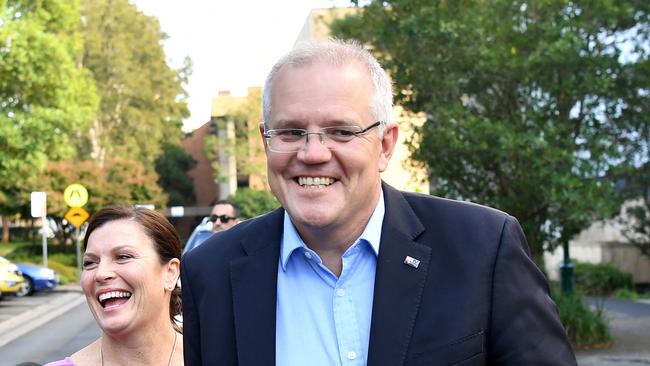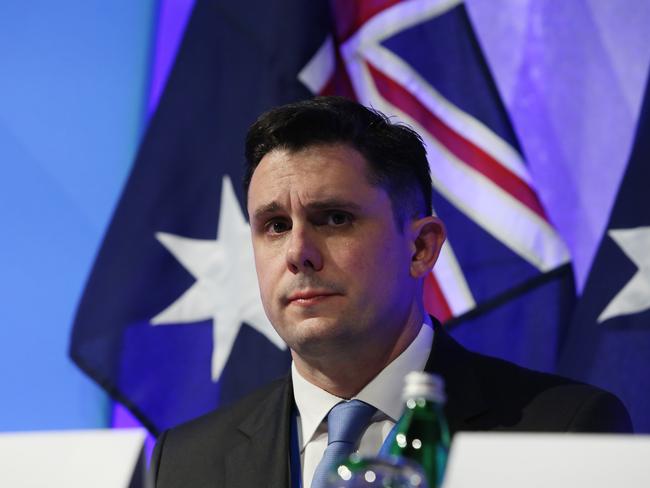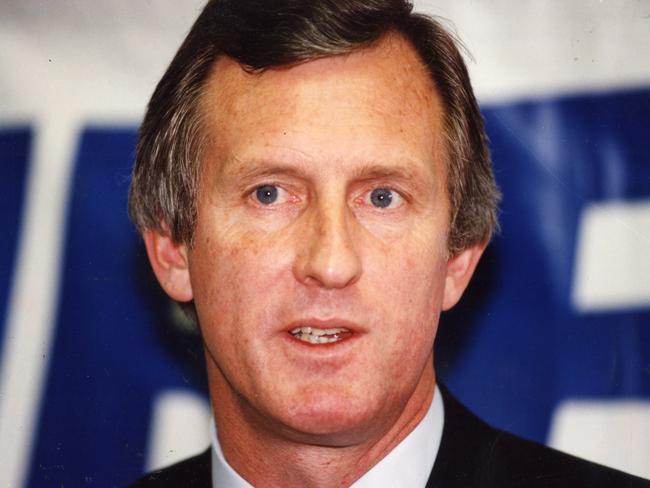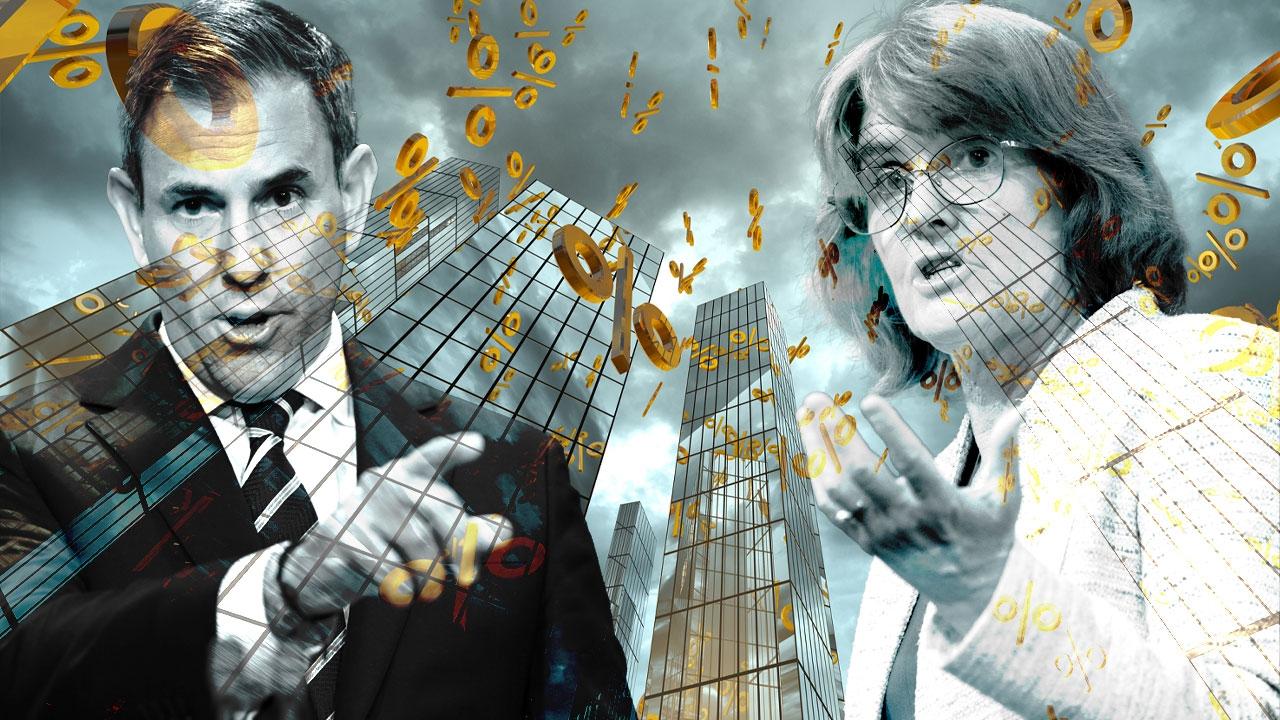PM stamps his authority with election win
The electorate has given Scott Morrison the imprimatur to govern that John Howard enjoyed.

Scott Morrison’s victory on Saturday will go down as the biggest political comeback in Australian history, while Bill Shorten has replaced John Hewson as the opposition leader who lost the most unlosable election.
The parallels with Hewson’s 1993 loss are remarkable: a prime minister who used the election campaign to unpick a big-target strategy; an opposition leader whose unpopularity contributed to the defeat; a party that had its ideological agenda for government repudiated by the people; and an organisational effort by the winning party that played a lead hand in the victory, via a powerful negative advertising campaign that stirred enough doubt in voters’ minds that they stuck with the devil they knew.
Two Liberals own this remarkable victory — Morrison and the new federal director of the Liberal Party, Andrew Hirst, whose advertising campaign and targeted marginal-seat strategy left Labor clutching for excuses to explain what happened.

Labor sources tell The Australian they now fear what Hirst is capable of if the Coalition is able to raise more funds for future elections, having fought this campaign on the smell of an oily rag.
As the numbers stood last night, the Coalition had secured 75 seats in the expanded 151-seat House of Representatives, with Labor on 65 seats. There are likely to be six crossbenchers, with five seats still undecided where the gap was less than 1 per cent.
Queensland disaster
Queensland was a disaster for the opposition. Wayne Swan’s former seat of Lilley is one of the five in the balance.
Labor lost the seats of Herbert and Longman, the latter retained in the super Saturday by-elections last year.
Labor made gains in Victoria — Shorten’s home state — but it fell well short of expectations, with Liberals holding on in marginal seats such as La Trobe. Even Chisholm, which saw sitting Liberal MP Julia Banks defect from the party to contest the seat of Flinders against frontbencher Greg Hunt, is still in the balance as counting continues.
In NSW, Labor failed to win seats such as Reid, where former Malcolm Turnbull supporter and popular MP Craig Laundy retired. But the loss of NSW Labor seats such as Lindsay and possibly Macquarie hurt the opposition the most.
After Peter Dutton almost seized the prime ministership on behalf of the Liberals’ hard Right, it appeared the damage would be irretrievable. However, the pragmatic decision to find a third candidate in Morrison united the party enough to focus on overhauling Labor’s lead. The Coalition trailed in more than 50 consecutive Newspolls, including the final one of the campaign, but won the two-party vote and looks set to at least form majority government again.
While Dutton’s supporters will claim the result vindicates their decision to go after Turnbull, Saturday’s results are more complicated.
Few believe Dutton could have won the election, just as large sections of the government doubt Turnbull had the campaigning skills to defeat Shorten, who outperformed the former prime minister on the hustings in 2016.
What goes around comes around: Team Morrison did to Labor what the progressive party did to the Coalition at the previous election. The “Mediscare” campaign was as disingenuous as the claims about how pervasive the “retirees tax” was or suggestions Labor wanted to implement death duties. Truth in advertising may be limited on the campaign trail, but Labor will need to accept that it tried to do too much. It will be a generation before we again see an opposition courageous enough to take a big-target strategy into an election campaign. Hewson tried and failed 26 years before Shorten’s humiliation.

A PM with authority
For more than a decade Australian prime ministers have lacked authority, forced to preside over governments in a weakened state. Previously this had been the preserve of oppositions, where leadership challenges and lost authority were more common.
Kevin Rudd was never a creature of the Labor Party, meaning that once his poll numbers fell away he was susceptible to a challenge, despite his remarkable 2007 victory. Julia Gillard’s poor performance at the 2010 election crippled her authority from the beginning. Tony Abbott’s unpopularity coupled with his broken promises left him diminished as soon as he won office, despite a thumping victory. And Turnbull’s failure to secure a larger majority in 2016 meant the ideological divisions in Liberal ranks bubbled to the surface.
Morrison’s win ensures his authority for the coming three-year term. He will govern, through good times and bad, with the authority John Howard commanded. His team will believe he has the skill to recover from poor polls.
New tone without Abbott
Abbott’s failure to win his safe Sydney seat of Warringah removes a destabilising force from the parliament. That will only increase Morrison’s chances of overcoming divisions on issues such as climate change and energy.
Morrison, a social conservative at heart, will be free to consider his response to challenges such as religious freedom laws without the pressure Abbott might have exerted internally.
But the victory doesn’t guarantee a successful Coalition government. The Nationals remain divided and Barnaby Joyce’s ambitions won’t go away. What happens with the economy will be a key factor in how the public judges the performance of the new Morrison government. Government sources tell The Australian that delivering the surplus next year should be achieved, but the forward estimate surpluses will be more challenging, as will ensuring promised tax cuts are legislated.
Hard work for Labor
Meanwhile, Labor is left to sift through the ruins. There is no escaping the impact Shorten’s unpopularity had in depressing Labor’s vote.
Abbott won the 2013 election despite his personal unpopularity, but he did so with a small-target strategy against a more dysfunctional Labor government. While Shorten’s unpopularity was far from the only factor that cost Labor government, it was a strong contributing factor.
Perhaps Australians have been desensitised to the tumult of leadership upheavals. Perhaps Shorten’s unpopularity surpassed Abbott’s. Perhaps Morrison as a compromise candidate post the Turnbull-Dutton showdown minimised the damage of the coup. Whatever the explanation, it is clear that voters were prepared to give Morrison the benefit of the doubt and were not prepared to deliver Shorten the prize of becoming the next prime minister.
Shorten’s career is over, but there is no obvious successor. While Anthony Albanese was quick to announce his intentions to run for the leadership, Tanya Plibersek also may emerge as a candidate. But she was a member of the shadow expenditure review committee that came up with the economic strategy that contributed to Labor’s demise and was Shorten’s deputy.
Opposition Treasury spokesman Chris Bowen is the leading figure of the factional Right, but he was also the architect of the rejected economic blueprint.
At the weekend right-wing sources within Labor were quick to promote finance spokesman Jim Chalmers as a potential generational-change candidate. Doing so is mostly about positioning him for the future. However, he too was a member of the ERC and a strong advocate of the economic approach the government unpicked and the public rejected.
Before Labor can decide on a new leader, it must work on its philosophical guiding principles. The fairness mantra is powerful, but perhaps not when it morphs into a narrative of class war and a “them versus us” approach.
The new Senate will be easier for the government to deal with once it forms in July. On the numbers in so far, if Labor and the Greens unite to block the government’s agenda, the Coalition will need the support of five of the remaining six crossbenchers — a less troublesome grouping to pull together than was the case in the previous parliament.
Palmer drama flops
Clive Palmer’s preferences were important to the results, especially in Queensland. But his party failed spectacularly, including his bid to win a Senate spot in the sunshine state. That final spot appears to have gone to One Nation’s Malcolm Roberts. Palmer’s failure despite him spending about $60 million on advertising proves you can’t buy office in this country, even if you can by influence via preference negotiations.
Morrison still faces internal challenges, including low female representation. While he hasn’t gone so far as to adopt formal quotas, he has pushed for more female candidates, some of whom won their way into parliament. And Morrison has committed to the largest number of women in his cabinet Australia has seen.
For Labor it’s a case of going back to the policy drawing board.
Although the party is devastated, history reminds us that political recovery can be swift — which also is why Liberals need to be careful not to fall victim to hubris. After Paul Keating’s comeback in 1993 he was bundled out of office in a landslide defeat three years later. Howard comprehensively defected Mark Latham in 2004, only to be defeated by Rudd in a landslide three years later.
Bob Hawke’s death served as a late campaign reminder of the differences between the way he governed and the intentions of Shorten’s team. Yes, Liberals falsely appropriate Hawke as some sort of liberal economic reformer. He introduced capital gains taxes, superannuation and an Accord with the unions that Liberals opposed at the time. But his approach was far less hostile to business than Shorten’s appeared to be.
Morrison’s moment
The irony is that through a lifetime in the union movement Shorten emulated Hawke but lurched too far to the Left when on the cusp of becoming prime minister. Not being true to his world view cost him the prize of government.
Morrison is far less ideological than Howard but Howard as prime minister became more pragmatic than he was through the 1980s and early 90s. Morrison has the chance to craft himself into a modern Howard if the economic times suit him. But that is a big if, with the trade war brewing between the US and China, and weakness in the domestic economy. Conservatives see retaining office to keep Labor away from Treasury as their most important task in politics. On Saturday Morrison achieved that. The task from here for the government will be to deliver on the few key performance indicators the Coalition set for itself during the campaign.
With many vacancies in ministries, the government will look very different from the team Morrison inherited from Turnbull. For Morrison to succeed he’ll need others to step up so the Liberal team appears stronger than it was during the campaign. Josh Frydenberg, Mathias Cormann and Christian Porter are strong contributors. But as the Coalition embarks on another three years in office, it’s all about Morrison after his extraordinary win.
Peter van Onselen is a professor of politics at the University of Western Australia and Griffith University.



